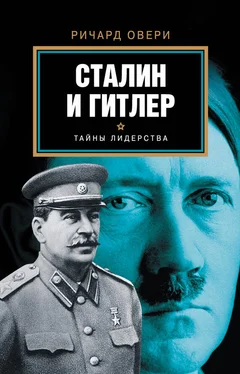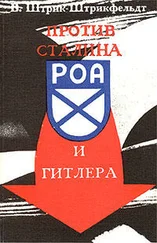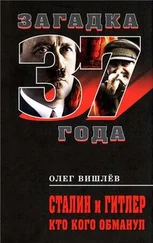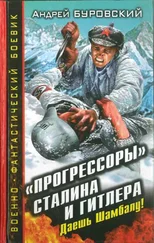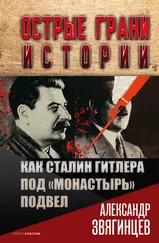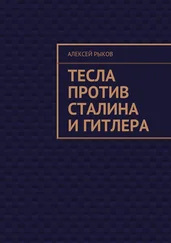21. Pospielovsky, Marxist-Leninist Atheism: I, pp. 30–34.
22. Hubbard, ‘Godless Communists’, pp. 62–3; D. Peris Storming the Heavens: the Soviet League of the Militant Godless (Ithaca, NY, 1998), pp. 48–9.
23. D. V. Pospielovsky A History of Marxist-Leninist Atheism and Anti-Religious Policies, Vol II: Soviet Anti-Religious Campaigns and Persecutions (London, 1988), p. 19; C. de Grunwald God and the Soviets (London, 1961), pp. 46–7, 79.
24. de Grunwald, God and the Soviets, pp. 73–9; F. Corley (ed.) Religion in the Soviet Union (New York, 1996), p. 119, instructions from Roslavl District Committee to Party offi cials and the League of the Militant Godless, 15 April 1937.
25. Bergman, The Image of Jesus’, pp. 240–42.
26. Pospielovsky, Marxist-Leninist Atheism: II, pp. 48–9.
27. M. Spinka The Church in Soviet Russia (Oxford, 1956), p. 38.
28. Bourdeaux, Opium of the People, p. 54; G. L. Freeze ‘Counter-reformation in Russian Orthodoxy: Popular Response to Religious Innovation, 1922–1925’, Slavic Review, 54 (1995), pp. 305–39.
29. Spinka, Church in Soviet Russia, pp. 62–6; Bourdeaux, Opium of the People, p. 54.
30. Pospielovsky, Marxist-Leninist Atheism: I, p. 51.
31. Pospielovsky, Marxist-Leninist Atheism: II, p. 34.
32. W. H. Chamberlin Soviet Russia: a Living Record and a History (Boston, 1938), p. 318; Pospielovskyj Marxist-Leninist Atheism: J, pp. 44–5.
33. de Grunwald, God and the Soviets, p. 54; Pospielovsky, Marxist-Leninist Atheism: II, p. 67.
34. Pospielovsky, Marxist-Leninist Atheism: II, pp. 66–8.
35. Curtiss, The Russian Church, pp. 228–9.
36. Pospielovsky, Marxist-Leninist Atheism: I, pp. 61–4; Curtiss, The Russian Church, p. 232.
37. A. Luukkanen The Religious Policy of the Stalinist State (Helsinki, 1997), pp. 53–4; Corley, Religion in the Soviet Union, p.
118. Other subjects included ‘The tale of christ and other dying and allegedly risen gods’, ‘Religion and the church in the service of international fascism’; and so on.
38. Pospielovsky, Marxist-Leninist Atheism: I, p. 55; Curtiss, The Russian Church, pp. 212, 253; see too G. Young Power and the Sacred in Revolutionary Russia: Religious Activists in the Village (University Park, Pa., 1997).
39. van Paassen, Visions Rise and Change, pp. 44–5, 72–3.
40. Peris, Storming the Heavens, p. 224 for the census result. Out of 98,410,000 census returns, 42,243,000 defi ned themselves as atheists. On bishops see Pospielovsky, Marxist-Leninist Atheism: II, pp. 67–8.
41. The Moscow Patriarchate The Truth about Religion in Russia (London, 1944); Spinka, Church in Soviet Russia, pp.82–6; S. M. Miner Stalin’s Holy War: Religion, Nationalism and Alliance Politics, 1941–1945 (Chapel Hill, NC, 2003), pp. 96–8.
42. Bourdeaux, Opium of the People, p. 234; Miner, Stalin’s Holy War, p. 99.
43. Pospielovsky, Marxist-Leninist Atheism: II, p. 96; I, p. 71; Peris, Storming the Heavens, p. 222.
44. B. R. Bociorkiw ‘Religion and Atheism in Soviet Society’, in R. H. Marshall (ed.) Aspects of Religion in the Soviet Union 1917–1967 (Chicago, 1971), pp. 45–6.
45. van Paassen, Visions Rise and Change, p. 60; Duncan, Russian Messianism, p. 58.
46. S. Roberts The House that Hitler Built (London, 1938), p. 268; M. Bendiscioli The New Racial Paganism (London, 1939), p. 22.
47. Meerson, ‘Russian Orthodox Episcopate’, p. 218.
48. P. F. Douglas God Among the Germans (Philadelphia, 1935), pp. 278–9.
49. K. Scholder A Requiem for Hitler and Other New Perspectives on the German Church Struggle (Philadelphia, 1989), pp. 54–5; Douglas, God Among the Germans, pp. 19–21.
50. A. Kolnai The War Against the West (London, 1938), pp. 247, 267: ‘no brave man wants another life’, claimed one German theologian.
51. Scholder, Requiem for Hitler, pp. 41–2.
52. Douglas, God Among the Germans, pp. 72–4; W. Künneth and H. Schreiner (eds) Die Nation vor Gott (Berlin, 1937), pp. 403–22.
53. Kolnai, War Against the West, pp. 233–4; Douglas, God Among the Germans, p. 74.
54. Künneth and Streiner, Nation vor Gott, pp. 444 ff; Kolnai, War Against the West, p. 283; Douglas, God Among the Germans, p. 58.
55. K. Scholder ‘Die evangelische Kirche in der Sicht der nationalsozialistischen Führung’, Vierteljahrshefte für Zeitgeschichte, 16
(1968), p. 18–19; Douglas, God Among the Germans, pp. 87–91; on Hauer see Kolnai, War Against the West, p. 283.
56. H. Trevor-Roper (ed.) Hitler’s Table Talk 1941–1944 (London, 1984), p. 191, 8–9 January 1942.
57. Trevor-Roper, Hitler’s Table Talk, p. 59, 14 October 1941; p. 125, 11 November 1941.
58. Trevor-Roper, Hitler’s Table Talk, p. 314, 8 February 1942: ‘The evil that’s gnawing our vitals is our priests, of both creeds.’
59. Douglas, God Among the Germans, pp. 2–3; Trevor-Roper, Hitler’s Table Talk, pp. 60–61, 14 October 1941; on Hitler’s religiosity see too H. Buchheim Glaubenskrise im Dritten Reich: Drei Kapitel nationalsozialistischer Religionspolitik (Stuttgart, 1953), pp. 9–16.
60. Douglas, God Among the Germans, pp. 14–17; Trevor-Roper, Hitler’s Table Talk, p. 59; D. Gasman The Scientifi c Origins of National Socialism (London, 1971), pp. 162–9.
61. Roberts, House that Hitler Built, p. 270; on Rosenberg see Douglas, God Among the Germans, pp. 30 ff.
62. M. Burleigh The Third Reich: a New History (London, 2000), p. 253; Hitler, Mein Kampf, pp. 419–20.
63. Douglas, God Among the Germans, pp. 212–13, 217; V. Barnett For the Soul ofthe People: ProtestantProtest againstHitler(Oxford, 1992), pp. 32–4.
64. Scholder, Requiem for Hitler, pp. 101–2; Barnett, Soul of the People, pp. 34–5.
65. Scholder, Requiem for Hitler, pp. 77–9, 90–92, 103.
66. Scholder, Requiem for Hitler, p. 93.
67. Text in P. Matheson (ed.) The Third Reich and the Christian Churches (Edinburgh, 1981), pp. 39–40, speech by Dr Krause, 13 November 1933; Douglas, God Among the Germans, pp. 81–4.
68. Trevor-Roper, Hitler’s Table Talk, p. 7, 11–12 July 1941; on Kerrl see Scholder, ‘Die evangelische Kirche’, pp. 26–8.
69. Douglas, God Among the Germans, p. 26.
70. Buchheim, Glaubenskrise im Dritten Reich, p. 16.
71. Bendiscioli, New Racial Paganism, pp. 3, 32.
72. Douglas, God Among the Germans, p. 21.
73. Scholder, Requiem for Hitler, pp. 110–11.
74. Bendiscioli, New Racial Paganism, pp. 67–85; Scholder, Requiem for Hitler, p. 112; Matheson, Third Reich and the Christian Churches, pp. 67–71, ‘With Burning Concern’, 14 March 1937. There was no room, the encyclical ran, ‘for an ersatz or substitute religion based on arbitrary revelations, which some contemporary advocates wish to derive from the so-called myth of blood and race’.
75. J. Conway The Nazi Persecution of the Churches (London, 1968), pp. 298–9. The fi gure is an estimate only. The exact number is not known.
76. Scholder, ‘Die evangelische Kirche’, pp. 23–4.
77. Barnett, Soul of the People, pp. 43–4.
78. Scholder, Requiem for Hitler, pp. 163–6.
79. Barnett, Soul of the People, pp. 87, 93.
80. F. Reck-Malleczewen Diary of a Man in Despair (London, 1995), p. 22.
81. Trevor-Roper, Hitler’s Table Talk, p. 6, 11–12 July 1941; p. 343, 27 February 1942.
82. S. A. Golunskii and M. S. Strogovich ‘The Theory of the State and the Law’, in J. Hazard (ed.) Soviet Legal Philosophy (Cambridge, Mass., 1951), pp. 366–77; D. Hoffmann Stalinist Values: the Cultural Norms of Soviet Modernity 1917–1941 (Ithaca, NY, 2003), pp. 58–9.
83. Guins, Soviet Law and Soviet Society, p. 27.
84. M. Stolleis Public Law in Germany 1880–1914 (Oxford, 2001), pp. 422–3, 430–31; I. Müller Hitler’s Justice: The Courts of the Third Reich (London, 1991), p. 71.
Читать дальше
Конец ознакомительного отрывка
Купить книгу
